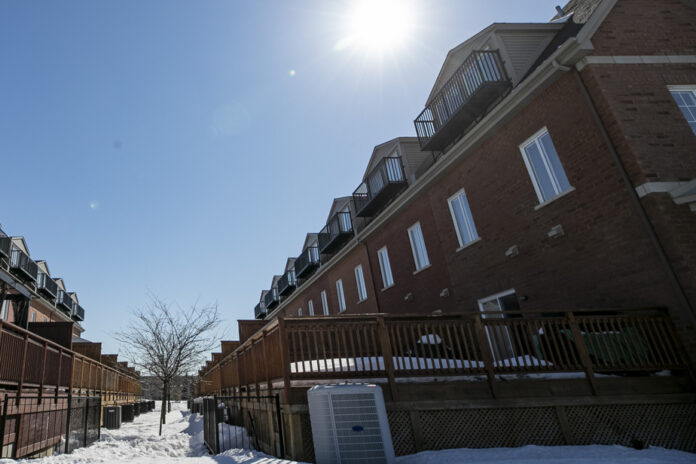Quebec is about to announce measures aimed at improving the energy efficiency of residences.
The Minister of the Environment, Benoit Charrette, confirmed Thursday in a press scrum that “in the coming days and weeks, there will be significant progress at this level that we will be able to confirm.”
At his side, the Minister of the Economy, Energy and Innovation, Pierre Fitzgibbon, acknowledged having been very interested in the study by the research firm Dunsky, according to which the improvement of waterproofing older residences represents a potential savings of 11 to 15 terawatts/hour (TWh), or the equivalent of two and a half times the production of the La Romaine complex.
Dunsky’s study, carried out on behalf of the Association of Construction and Housing Professionals of Quebec (APCHQ), highlights that alone, rural houses built before 1960 represent a potential gain of 5, 8TWh.
“When we look at the potential in terms of terawatts/hour, if I look at the housing stock of houses built before 1960, when we look at the consumption in gigajoules of these houses, it is triple […] of the new houses built ” admitted Mr. Fitzgibbon.
“It is clear, as a government, that in light of this, we must establish programs,” he in turn declared.
The investment plan recently presented by the President and CEO of Hydro-Québec, Michael Sabia, plans to obtain a meager 3.8 TWh in terms of energy efficiency and focuses first on the installation of new heat pumps , the effectiveness of which has greatly improved in recent years. It is therefore far from the “repository”, as Dunsky’s study describes it, of 11 to 15 TWh available through improved watertightness alone.
“So much the better if we can beat Mr. Sabia’s objectives, which are very ambitious by the way, but definitely, as a government, the building code, both in renovations and for new constructions, we absolutely must have programs for that ” repeated Mr. Fitzgibbon.
Pierre Fitzgibbon remained cautious when asked to clarify his intentions, but he seems to have been seduced by the data presented to him by the APCHQ. “I don’t want to answer today on the means that we are going to use, but clearly, to recognize the incredible potential that we have in Quebec’s real estate stock, which is a stock that is aging, it is certain that as government – and with Mr. Charette, when we look at the climate objectives, that we want to reduce GHGs by 37.5% by 2030 and be carbon neutral in 2050 – we will need perhaps more daring programs. »
On the other hand, the question of costs, in a context of budgetary tightening, remains sensitive, he recalls. “We must now find the financial means together to encourage, because when we carry out a renovation […] we should clearly have a program which should be more incentive. We have not yet analyzed the costs. I wouldn’t be able to tell you how much we’re talking about for the park to be rejuvenated, but it’s probably several hundred million. »
The two ministers met with journalists following a press conference announcing a 25 million investment by Investissement Québec in the firm Deep Sky, which will soon launch carbon capture and sequestration projects.















